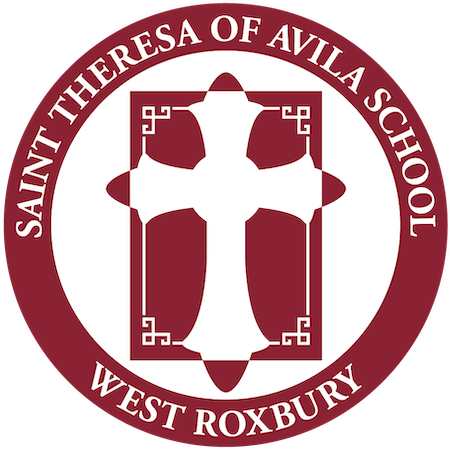Grade 6
In sixth grade, students build upon their academic foundation from grades K-5 while developing time-management skills. Students also work on balancing more independence with additional responsibility and ownership of their academic performance. Team 6 works collaboratively to guide students to becoming organized and confident independent learners and decision makers.
Religion
The sixth grade religion curriculum uses RCL Benziger’s Blest Are We, Faith and World Edition text to develop religious literacy and knowledge. The unit themes include answering God’s call, how God saves and delivers his followers, invites us into his kingdom, reminds us to do his will and promises all believers everlasting life. In addition to Blest Are We, the sixth grade has implemented the Archdiocese of Boston’s Created for Love program. Created for Love is a program designed by the Respect Life Education Office and integrated into the existing religion curricula in Grades 6, 7, & 8. In sixth grade, the program centers on unique identity and being created in the likeness of God in order to prepare students for middle school topics of God’s Plan for Life, Love & Relationships.
English/ Language Arts
Sixth grade English/Language Arts focuses on increasing students’ ability to write longer pieces and read for longer periods of time. Students learn to write narrative, expository, and persuasive writings as required by the Common Core writing standards for grade 6. The book Exercises in English is used to strengthen the students’ grammar skills, in order to apply these skills in their everyday writing. The reading curriculum focuses on reading multiple genres and improving reading skills. Students read stories from Prentice Hall Literature, as well as whole class books, and other resources. Reading skills focused on include comprehension, vocabulary, making connections, and understanding the difference between various types of literature. Vocabulary is practiced with the workbook Wordly Wise.
Mathematics
The sixth grade mathematics curriculum is aligned with the Common Core Standards and Scott Foresman Envision Math program. It focuses on preparing students for middle school algebra by addressing how real world problems and activities are accomplished with the help of mathematical models. Topics include understanding the place value system/numeration, expressions with variables and algebraic properties of equalities, computing operations with decimals, fractions & mixed numbers, proportion relationships/ratios, geometry, measurement and probability/estimation. In grade six, students apply and extend previous understandings of arithmetic to algebraic expressions, as well as, developing estimation and reasoning abilities.
Science
Sixth grade science explores the areas of Life Science, Physical Science, and Earth Science through the textbook Interactive Science. Life Science focuses on cell structure and how they affect functions within humans and plants. Also, sixth graders learn about animal and plant adaptations and the adaptations needed to live within certain ecosystems. Physical Science focuses on exploring energy and motion, and the molecular structure of matter. Within Earth Science the students will explore the internal and external processes of the Earth. Students use the inquiry skills of observing, classifying, measuring, inferring, predicting, constructing a hypothesis, collecting and interpreting data, communicating, and experimenting.
Social Studies
Grade six social studies curriculum based on Scott Foresman World Social Studies explores world history and geography. Topics include Prehistoric Cultures, Ancient Civilizations, the Americas, Mediterranean Empires, The Medieval Ages, International Country Project, U.S. Geography, Scholastic News current event articles and the five themes of geography. Bimonthly, students also discuss a United States or world news story. Students then write an expository summary about the event. Current event topics may include: updates on political campaigns, foreign or domestic policies, environmental issues, scientific advances, local town or government concerns. An MLA style citation and heading are practiced and included in the format of each summary. Technology is integrated into the program through interactive activities on classroom iPads and SMART Board. Students also research country demographics in order to present a cross-curricular project with language arts and science components.
The sixth grade curriculum adheres to the Common Core Standards and Massachusetts Curriculum Frameworks.
